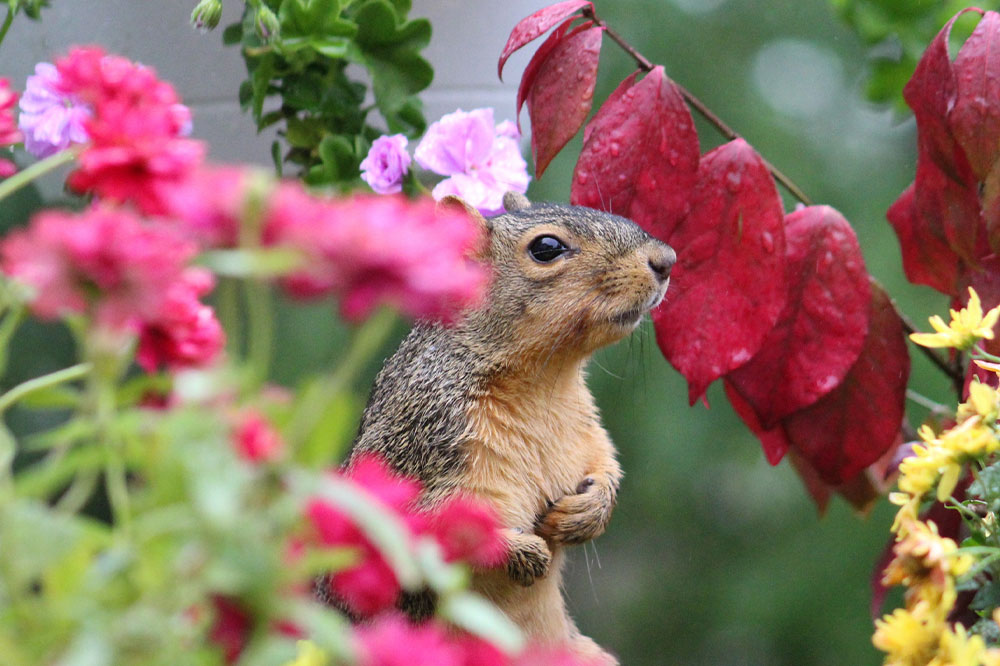Everything to know about flora and fauna
Our world comprises of living and non-living things, usually biotic and abiotic. Abiotic objects include water bodies, mountains, plateaus, etc. The biotic world consists of the fascinating world of flora and fauna that is so abundantly found on earth. Flora & fauna are critical for the survival of humans on the planet.

What is flora & fauna?
Let’s start with the basics and understand the meaning of flora & fauna.
Flora
The term ‘flora’ originates in Latin and refers to the goddess of flowers. This term includes plants and natural vegetation such as indigenous plants, algae, and fungi.
It is further classified based on several factors such as:
The climate in the area
Time period
Other specific conditions
For instance, the English Oak tree is a native flora of the United Kingdom. Flora also includes plants for specific purposes, such as agricultural or medicinal plants. We grow some plants purely for ornamental or decorative purposes. This is known as garden flora. Some types of flora, such as weeds, could also be unwanted.
Fauna
‘Fauna’ or ‘faunas’ refers to the Goddess of fertility. Another source of this word is ‘fauns,’ which means forest spirits. This term refers to the population of animal life in a particular location or time. The term fauna was first used by Carl Linnaeus, a botanist, in the 1700s.
Just like flora, fauna is also divided into several sub-categories. However, the latter is much more complex since animals have evolved in many different ways. These categories include:
Avifauna (birds)
Piscifauna (fish)
Microfauna (viruses and bacteria)
Cryptofauna (all undiscovered and unknown animals)
What is the importance of flora & fauna?
Now, it is important to understand their importance in our lives. Our ecosystem is holistic and interconnected. It thrives and functions with the help of all living forms. Every plant and animal life form in this ecosystem contributes things that other life forms, including humans, rely on. They are imperative to allow the cycle of life to continue.
For ease of understanding, we have detailed the importance of flora & fauna.
Ecological Balance
The primary reason why it is essential for our survival is that they allow us to breathe. While flora produces and releases oxygen essential for fauna to survive, the fauna releases carbon dioxide. This carbon dioxide and sunlight are important for the flora to survive.
Needless to say that we humans cannot survive without this important function of the flora & fauna. The native flora also helps in keeping the local environmental ecosystem flourishing. Besides this, it also helps fertilize soil and filter water, making it fit for consumption.
Important food sources
Besides allowing each other to breathe and survive, flora & fauna also serve as sources of food and nutrition. For instance, flora is one of the primary food sources for fauna and humans. For example, some insects rely on clusters of flora to lay eggs, such as larger insects, and birds feed on these smaller insects. In return, these birds help disseminate plant seeds, allowing for more plants to grow, which humans consume.
Prevent soil erosion and natural calamities
Forest and plant covers are critical for preventing large-scale erosion of soil and natural calamities such as floods and landslides. The roots of the plants and trees hold the soil particles together and bind them with their root systems. This prevents soil from washing away.
This also prevents the soil from filling up nearby water sources, choking the aquatic life and degrading the water quality.
Source of medicine
Plants have been used since ancient times for their medicinal properties, containing compounds such as polyphenols and antioxidants that have anti-inflammatory, anti-microbial, and other healing properties. They have immense health benefits for illnesses, injuries, infectious diseases, and mental health.
Contribute to their local economies
Flora & fauna are amongst the biggest attractions for travelers when they plan to visit any place. For example, the dense forests of the Caribbean and Amazon attract many people each year. Similarly, Australia’s Koala Bear, the tigers of Siberia, and the Royal Bengal Tiger are huge tourist attractions.
In the long run, this helps boost the local economies and brings prosperity to the locals.
Despite how important flora & fauna are for our sustenance, human intervention poses more and more danger to them every day. Destruction of habitats, encroachments, and the indiscriminate killing of wildlife has endangered several species. It’s time we start paying heed to this precious bounty of nature if we want to sustain ourselves on the planet.











